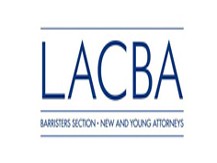Gregory J. Lederman
Gregory J. Lederman specializes exclusively in estate, trust, the probate process and probate matters. Gregory J. Lederman has been certified as a specialist in estate, trust and probate law by the California Board of Legal Specialization of the State Bar of California. Gregory J. Lederman has extensive litigation experience in the area of estate, trust and probate litigation from discovery, law and motion and trial work.
DOES EVERY ESTATE HAVE TO GO THROUGH THE PROBATE PROCESS?
The simple answer is no, many estates do not require probate administration. Under the California Probate Code, estates of less than $100,000 generally do not require probate administration. Typically, property held in joint tenancy or community property with right of survi-vorship also avoids probate, regardless of the value of such property, as do assets held in a living trust. Life insurance policies, IRAs, and 401(k)s are controlled by beneficiary designations, as discussed more fully below, and also generally do not require probate.
ARE LIFE INSURANCE POLICIES AND RETIREMENT ASSETS SUBJECT TO PROBATE?
Life insurance policies and retirement benefit accounts, such as IRA and 401(k) accounts, typically have named beneficiaries. Upon the policy or account holder’s death, the assets are to be distributed to the named beneficiary.Since there is no question as to who is entitled to receive the asset, probate is generally not required. Probate may be required to determine who is entitled to an asset if the named beneficiary is deceased and the policy or account does not name a secondary or contingent beneficiary.
It is important to note that the beneficiary designations on these assets may control regardless of the specific provisions of your will or trust; careful coordination of your beneficiary designations are required in order to ensure that your estate planning objectives are met. There are also important tax implications involved in designating beneficiaries of retirement benefit accounts; it is important to consult your lawyer regarding your beneficiary designations.
WHY IS IT ADVANTAGEOUS TO AVOID THE PROBATE PROCESS?
First, probate typically takes a very long time to complete. The average probate matter takes anywhere from several months to two years. Second, probate is expensive. California has statutory maximums for attorney’s fees, but they can still reach many thousands of dollars, depending on the size of the estate. There are also court and appraisal fees, and if the estate is particularly complex, the attorney and executor can petition the court for fees exceeding the statutory maximum. Finally, probate is a public process. That means anyone can find out the estate’s value, the beneficiaries’ identities, how much each person is to receive under the estate, and the estate’s debts.
HOW IS A LIVING TRUST DIFFERENT FROM A WILL?
Both a living trust and will are created in your lifetime; however a living trust is a recognized legal entity upon its formation, whereas a will has no legal effect until your death. When the person who created the trust (referred to as the “trustor” or “settlor” of the trust) dies, the assets in the trust are distributed to the persons named, and in the manner specified, by the trust. The person or entity named in the trust as the successor trustee oversees the administration of the trust after the trustor or settlor dies. Since the living trust provides a clear succession plan, assets held in a living trust avoid probate. Living trusts can also have certain tax advantages and allow the trustor to provide a plan in case he or she becomes incapacitated.
Assets passing pursuant to a will require probate administration, and since a will does not have any legal effect during the testator’s lifetime, a will does not provide a plan for the testator’s incapacity.
SEEK EXPERIENCED LEGAL COUNSEL
Whether your estate planning needs require a simple will or a living trust, the Law Offices of Greg Lederman provides comprehensive, tax-sensitive estate planning services tailored to your individual needs. Contact us today to arrange a confidential consultation regarding your estate planning needs.











